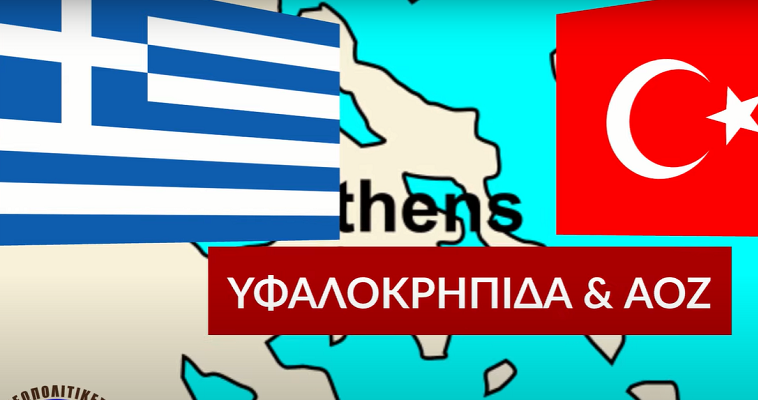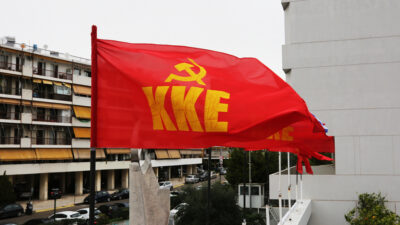Nefeli Lygerou: Why this Greek-Turkish negotiation will also fail
04/08/2020
The suspension for one month (according to the Turkish version) of Oruc Reis’s research activities in a sea area south of Kastellorizo was decided when Berlin, mediating, assured Ankara that Athens had agreed to restart the bilateral dialogue, which in reality constitutes negotiations, in the near future.
.
The Turkish side speaks of negotiations “without terms and conditions”. Essentially, what is required is for each side to put on the table any issue it deems to be a bilateral dispute. It is obvious that in this way Turkey seeks to legitimize the expansive claims its has, since 1973-74, cultivated against Greek sovereign rights, but also against the Greek territory itself, with allegations of “gray zones”.
For its part, Athens insists that the only bilateral difference is the delimitation of the continental shelf. It continues to use the term continental shelf and does not use the broader term EEZ (Exclusive Economic Zone), because Turkey has not signed the Convention on the Law of the Sea and does not recognize the EEZ term introduced by this Convention. This is despite the fact that this Convention is a customary law and as such binds the countries that have not signed it, and therefore Turkey.
Thus we reached the rather comical point of the Greek Foreign Minister, not mentioning the term EEZ, talking about the continental shelf and the overlying sea zones! The reason why Ankara does not talk about EEZs is not formalistic. The Convention on the Law of the Sea (1982) recognizes more clearly than previous conventions that islands, which can sustain even basic economic activity, have EEZs, te same as the mainland.
Erdogan’s real intentions
According to reliable information, the format of the negotiations will be that of informal exploratory contacts, which were launched after the so-called “earthquake diplomacy” in 1999. We should note here that the exploratory contacts were carried out at an intensive pace, until the end of 2003. Since then they have continued, but more sparsely and effectively without a strong will to reach a compromise, mainly because it was clear that the gap between the two sides was unbridgeable. Or at least in order to be bridged, it required concessions from Greece that crucially affected national interests.
Indicative of Erdogan’s intentions is the fact that immediately after the announcement that Oruc Reis’s investigations in the potential Greek EEZ are frozen, he sent Barbaros for research in the Cypriot EEZ. In this way he wanted to clarify that the procedural agreement on a moratorium promoted by the German mediation does not concern the Republic of Cyprus. At the same time, he drove a wedge in Athens-Nicosia relations, sending to the Greek Cypriots the message that Greece only looks out for itself and that it has left them to their fate.
Turkish Defense Minister Hulusi Akar said Greek and Turkish officials would meet in Ankara in the coming days to discuss issues that have led to a recent escalation of tensions. In fact, this meeting will be preliminary, in order to de-escalate the tension and create a constructive climate.
According to information, this was an idea of German mediation, which was accepted by both sides. The tripartite secret meeting of the diplomatic adviser of the Prime Minister, Ambassador Eleni Surani, with the representative of the Turkish Presidency, Ibrahim Kalin, in the presence of the diplomatic adviser of Chancellor, Jan Hecker, showed that the climate is charged.
Resumption of exploratory contacts
In addition, Mevlüt Çavuşoglu’s subsequent revelation of the meeting caused an additional rift in the level of trust, as all three had agreed to keep the meeting secret in order to avoid side effects. Remarkable is Greek FM Dendia’s statement about the situation we are in: “We have not reached a point where we can say that we have even agreed to start a dialogue, which was interrupted in 2016, ie exploratory discussions.”
The minister added, among other things, that “we are not currently at the level of exploratory talks with Turkey, but at the level of contacts that could, if successful, lead to the resumption of exploratory talks.” Reportedly, this is accurate only in the sense that the exact negotiation process has not been agreed upon.
On the other hand, both sides in their contacts under the German mediation have accepted the conduct of negotiations. In this case, in fact, the process is essential. Diplomatic sources told us that Athens and Ankara are not going to start from scratch. They take it for granted that they will somehow catch the thread from where they left it in the informal exploratory contacts.
What is being said in the leading ranks of the Greek Ministry of Foreign Affairs is that the 34 rounds of exploratory contacts have accumulated a bargaining background, which will in fact be the starting point from which the new negotiation will start. An important issue is who will lead the two delegations. Usually this role was played by either the general secretaries or the general directors of political affairs of the two foreign ministries.
A diplomatic source told us, however, that Eleni Sourani and Ibrahim Kalin will also have a role, without specifying what that will be. According to the same source, the two will also act as a channel of direct contact PM Kyriakos Mitsotakis and President Tayyip Erdogan. This, after all, was agreed by the two leaders in their telephone communication before the tripartite meeting in Berlin. It should be noted that it is important who will be the legal advisor of the Greek delegation. Diplomatic sources consider it a crucial issue whether this role will be played by someone from the Rozakis circle or an official of the Legal Service of the Ministry of Foreign Affairs.
Diametrically opposed positions
It is worth emphasizing, however, that the two sides are starting from opposite positions on the issue of maritime zones, with which – according to information – negotiations will begin. This is how exploratory contacts began about 20 years ago. As is well known, Ankara claims, in violation of international law, that islands do not have a continental shelf-EEZ, while Athens considers that they have full influence.
However, even if Greece accepted the Turkish demand, the other big problem, the, so-called by Turkey, “gray zones”, would not be solved. Of course, the Turks were aware that Greece would never accept the existence of “gray zones” and that is why they had tried to put it in “through the window”. The “gray zones” torpedoed the exploratory contacts even when they resumed in 2009 after the formation of the government of George Papandreou.
In all probability, the agenda of this Greek-Turkish negotiation will not be very different from the menu of informal exploratory contacts. This time, however, Turkish pressure is being exerted on the Eastern Mediterranean and not the Aegean, because significant hydrocarbon deposits have been located there and because the center of gravity of geostrategic competition has shifted there as well.
This difference, however, does not change the fact that the gap is still unbridgeable today, probably more than it was 20 years ago. That is why this Greek-Turkish negotiation will probably have the fate of the previous ones. Turkey is asking for so much that no Greek government can give it.





